
-
 Scotland boss Townsend picks veterans Gray and Cherry for Six Nations
Scotland boss Townsend picks veterans Gray and Cherry for Six Nations
-
Record try-scorer Penaud faces French axe for Six Nations

-
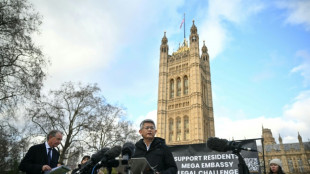 UK approves plans for Chinese mega-embassy in London
UK approves plans for Chinese mega-embassy in London
-
Rosenior keen to build winning ties with 'world-class' Fernandez
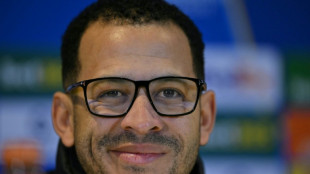
-
 Dakar delights in Senegal parade honouring AFCON champions
Dakar delights in Senegal parade honouring AFCON champions
-
UK comedian Russell Brand in court on two new rape charges
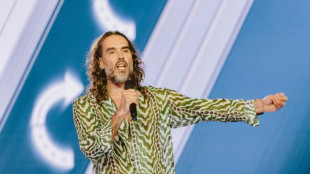
-
 France set to face New Zealand with second-string squad
France set to face New Zealand with second-string squad
-
Eyeing China, EU moves to ban 'high-risk' foreign suppliers from telecoms networks

-
 Struggling Suryakumar will not adapt style to find form before T20 World Cup
Struggling Suryakumar will not adapt style to find form before T20 World Cup
-
World stocks sink, gold hits high on escalating trade war fears
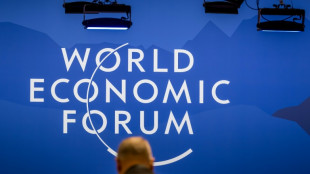
-
 Easier said than done for US to apply tariffs on single EU states
Easier said than done for US to apply tariffs on single EU states
-
Canada military models response to US invasion: report
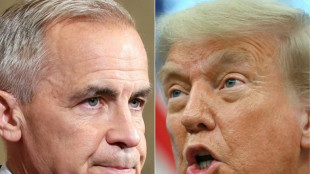
-
 Salah returns to Liverpool training after AFCON
Salah returns to Liverpool training after AFCON
-
Milan menswear shows add bling with brooches

-
 Scotland recall Gray, Cherry for Six Nations
Scotland recall Gray, Cherry for Six Nations
-
Scheib storms to Kronplatz giant slalom victory as Brignone impresses in World Cup return

-
 Chagos Islands: international dispute and human drama
Chagos Islands: international dispute and human drama
-
Thousands of farmers protest EU, Mercosur trade deal ahead of vote

-
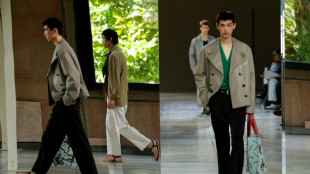 Men's Fashion Week kicks off in Paris with tributes for Valentino
Men's Fashion Week kicks off in Paris with tributes for Valentino
-
Lake named as captain as Wales unveil Six Nations squad

-
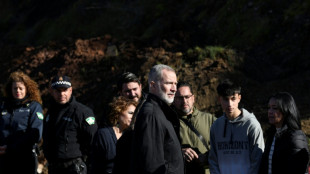 Royals visit deadly train crash site as Spain mourns
Royals visit deadly train crash site as Spain mourns
-
Police, pro-Kurd protesters clash at Turkey border with Syria
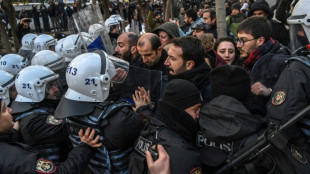
-
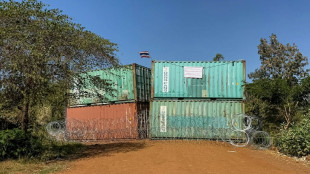 Thai forces razed Cambodian homes on border: rights group
Thai forces razed Cambodian homes on border: rights group
-
Jellyfish-inspired Osaka battles into Australian Open round two
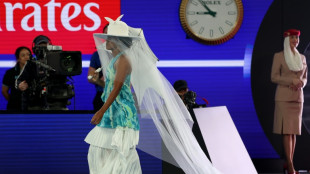
-
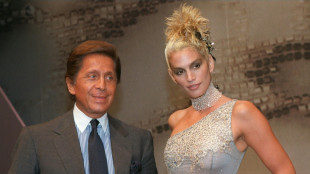 Valentino taught us to respect women, says partner
Valentino taught us to respect women, says partner
-
Australia stiffens hate crime, gun laws after Bondi attack
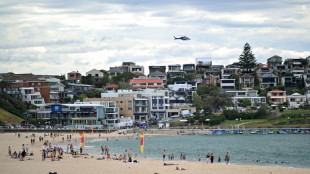
-
 Mercedes chief designer Owen to leave F1 team
Mercedes chief designer Owen to leave F1 team
-
Trump unloads on allies as Davos showdown looms
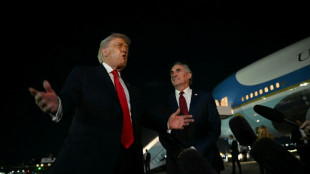
-
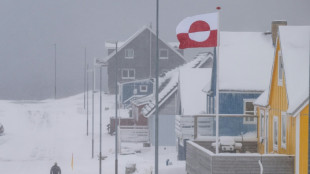 Moscow revels in Trump's Greenland plans but keeps concerns quiet
Moscow revels in Trump's Greenland plans but keeps concerns quiet
-
Global tourism hit new record level in 2025: UN
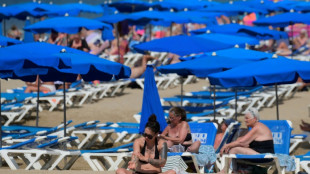
-
 Senegal poised to party with parade honouring AFCON champs
Senegal poised to party with parade honouring AFCON champs
-
Osaka emerges for Melbourne opener under hat, veil and parasol
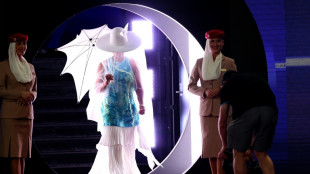
-
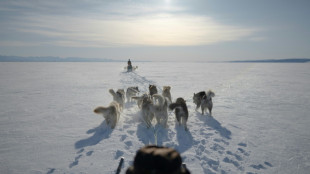 Dogsled diplomacy in Greenland proves elusive for US
Dogsled diplomacy in Greenland proves elusive for US
-
Almost half of Kyiv without heat, power, after Russian attack

-
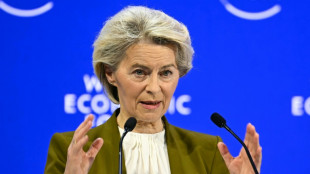 EU vows 'unflinching' response to Trump's Greenland gambit
EU vows 'unflinching' response to Trump's Greenland gambit
-
Osaka steals show at Australian Open as Sinner strolls through

-
 Brignone impresses in first run of Kronplatz giant slalom in World Cup comeback
Brignone impresses in first run of Kronplatz giant slalom in World Cup comeback
-
Osaka emerges for Melbourne opener under white hat and umbrella
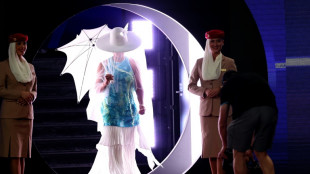
-
 Malawi suffers as US aid cuts cripple healthcare
Malawi suffers as US aid cuts cripple healthcare
-
Bessent says Europe dumping US debt over Greenland would 'defy logic'

-
 Freeze, please! China's winter swimmers take the plunge
Freeze, please! China's winter swimmers take the plunge
-
Talks between Damascus, Kurdish-led forces 'collapse': Kurdish official to AFP

-
 In-form Bencic makes light work of Boulter at Australian Open
In-form Bencic makes light work of Boulter at Australian Open
-
Spain mourns as train disaster toll rises to 41

-
 Sinner into Melbourne round two as opponent retires hurt
Sinner into Melbourne round two as opponent retires hurt
-
Israel begins demolitions at UNRWA headquarters in east Jerusalem

-
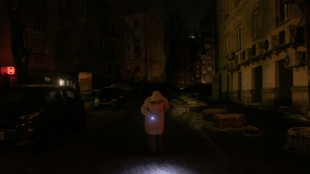 Almost half of Kyiv without heat, power, after Russian attack: govt
Almost half of Kyiv without heat, power, after Russian attack: govt
-
Veteran Monfils exits to standing ovation on Australian Open farewell

-
 Precision-serving former finalist Rybakina powers on in Melbourne
Precision-serving former finalist Rybakina powers on in Melbourne
-
South Korea's women footballers threaten boycott over conditions

| CMSC | -0.66% | 23.325 | $ | |
| NGG | -0.56% | 80.439 | $ | |
| BCC | -1.75% | 84.04 | $ | |
| RYCEF | 0.58% | 17.15 | $ | |
| RIO | -0% | 85.129 | $ | |
| SCS | 0.12% | 16.14 | $ | |
| JRI | -0.04% | 13.695 | $ | |
| VOD | 0.55% | 13.545 | $ | |
| GSK | -0.04% | 48.2 | $ | |
| BCE | 1.13% | 24.415 | $ | |
| BTI | -1.78% | 57.2 | $ | |
| AZN | -4.24% | 90.59 | $ | |
| BP | -0.14% | 35.33 | $ | |
| CMSD | 0.04% | 23.93 | $ | |
| RELX | -2.46% | 40.63 | $ | |
| RBGPF | -1.87% | 82.5 | $ |

Journey to the center of the world (Hint: it's in California)
Every morning, Jacques-Andre Istel has breakfast in bed at the center of the world.
Istel is founder, mayor and postmaster general of Felicity, a stretch of California's Sonora Desert where for nearly four decades he has been building a museum of, y'know... the whole of human history.
"This doesn't exist anywhere else on this planet," the 94-year-old told AFP.
What started in 1986 with two small houses has grown into an amphitheater of Istel's dreams; 2,600 acres (1,052 hectares) where the passage of time is marked by a sundial that uses the arm of God -- as painted by Michelangelo in the Sistine Chapel -- to cast its shadow.
Nearby sits a bit of an old staircase that used to be part of the Eiffel Tower, its steps ascending into the void.
The town's post office, which Istel has operated since December 1987, collects and distributes mail for a handful of residents and tourists. The $1 stipend checks sent by the US Treasury every year are uncashed and framed.
Istel was elected mayor of Felicity shortly after it was founded in a three-vote landslide.
The ballots were cast by Istel, his wife Felicia, after whom the town is named, and the invisible dragon that stars in Istel's storybook about the center of the world.
(A supervisor from Imperial County, in which Felicity sits, declared all three ballots valid, noting that a dragon's vote was recognized "for the first and only time in California history".)
- The 'center' of the world -
Visitors to Felicity -- dozens of tourists stop by every day between October and April -- enter between symmetrical houses and are faced with a pyramid.
This is -- officially -- the middle of, well, everything. Honestly. There's paperwork to prove it: Supervisors in Imperial County declared it so.
Istel acknowledges with a twinkle in his eye that he's using a bit of creative license.
"The center of the world can be anywhere," he smiles.
Beyond the pyramid, 723 red granite panels stretch out in thematic branches, exploring history, geography, politics, science, fashion and culture.
Here, a panel tells the story of slavery in the United States; there, one examines the life of Alexander the Great.
One slab deals with the sacrificial rites of the Vikings, while another logs America's eating habits.
- Skydiver -
Istel was born in 1929 into a privileged family in the French capital.
He left the country as the Nazis were preparing to march on Paris, and wound up in the United States.
"I'm here thanks to the Germans," he says.
"My family fought against them for three generations. My father left for England with [Charles] De Gaulle, my brother left the French Army for Canada and enlisted in the Royal Canadian Air Force and eventually died, and my mother and the rest of us kids came to America."
After a degree in economics, the young Istel went into the family banking business on Wall Street.
But in a seemingly emblematic bit of topsy-turviness, he wound up as a professional skydiver, the kind of career swap disappointment that usually seems to happen the other way around.
Seeking thrills outside of a job he did not really enjoy, he got his pilot's license, and did his first parachute jump.
A trip to Europe introduced him to the then-unnamed activity of skydiving, an idea Istel brought back to the United States, where the company he cofounded helped popularize the idea of recreational skydiving, becoming known in some quarters as the "Father of American skydiving."
Contracts with the military and a roaring civilian business made the firm a success, and provided the nest egg for what later became Felicity.
In a study lined with memories from a very full lifetime -- a diploma from Princeton, pre-war furniture and family photographs -- Istel says his museum is not a legacy for himself, but a gift to all of humanity.
Perhaps it will become a place of pilgrimage for generations to come; or maybe in seismically-active California it will be destroyed in a catastrophic earthquake, he muses.
"The silver lining in that case is that archaeologists of the future will unearth a great find," he says.
And if they never find it? Well, that's just how things work out sometimes.
"Everything is forgotten," he says.
Now well into his tenth decade, Istel shows no sign of slowing down (breakfast in bed is a decades-old custom for him, not a sign of old age). He swims daily and skips jauntily up the 49 steps that lead to the chapel in Felicity.
There is, after all, still so much to do -- almost 200 panels are yet to be carved. And who knows? There's still all that desert space to fill.
The magnitude of the task might keep a lesser man awake at night.
But not Istel.
"I sleep well. But I do think about the next panels," he says.
"At Felicity we don't do things by halves. We do them properly or we don't do them at all."
R.Adler--BTB



